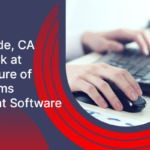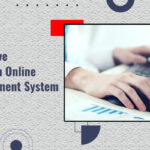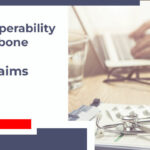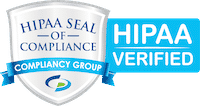Ways For Improving Your Medicare Claims Software
September 5, 2024
Medical claims management is a part of your revenue cycle process. However inefficient medical claims affect the overall financial health of your practice. Also, patient payments make up the most significant part of the practice’s income, managing claims and reducing denials. So, it becomes essential to choose Medi-Cal Claims Software that helps you to improve your existing system.
It has been seen that around 35% of claims have been denied or ignored upon initial submissions. Sometimes the most minor coding can cause payment delays or a claim denial. Whenever a payer denies a claim, means you waste both the time and resources that are used to process it.
Inefficiencies in your claim management process affect your cash flow and can negatively impact the patient experience. Improving your claims management system is an essential step towards a successful business and satisfied patients.
Read Out the following how practices improve medical claims management
1: Look For Compatibility With Systems
When it comes to choosing Medicaid Claims Software, compatibility with the system is essential. Failing to compatibility may lead to data integration issues resulting in errors, inefficiencies, and increased workload. Selecting software that aligns with your existing systems and your streamlined operations enhances accuracy and facilitates seamless data exchange. This saves time and improves your overall efficiency in your medical billing processes.
2: Invest In Staff Training
Practices work with a lot of different payers and each payer needs to follow a set of rules. For inexperienced billers, processing each claim might be confusing and lead to errors. Most of the time, a claim rejection message is hard to dissect and teach your billers to be a problem solvers. So, learning how to analyze rejections takes time and experience. Thus, preparation helps your staff to process claims with few errors and streamline the claim management process.
3: Update Information Regularly
Patients you may have seen some months ago might change their jobs and get different insurance. However, if your billing team can submit that claim without verifying a patient’s eligibility, means you risk of rejection. Due to this your staff need to again repeat the whole process instead of moving on to new claims.
While having inaccurate information can lead to erroneous claims and regularly updating patient demographics submits clean claims. You need to train your members to ask patients whether they have updated their details during check-in or not.
To prevent patients from crowding the front desk, allow your patients to update their records before the appointment. You can also add a self-check-in app that enables patients to update their records. By using this technology for patient verification, you will need to avoid giving inaccurate information.
4: Ensure Compliance
Ensuring compliance with medical billing regulations is essential. Otherwise, results in penalties, legal issues, and revenue loss. So by adhering to regulations, one can maintain data accuracy and ethical billing practices. Choosing compliant software ensures streamlined operations and protection against potential audits or fines.
5: Posses User-Friendly Interface
However, a user-friendly interface in Medicaid Claims Software ensures easy navigation and designs for seamless operation. So, if you overlook this aspect, means you risk confusion, errors, and inefficiencies in handling crucial media data. Prioritizing a user-friendly interface streamlines tasks reduces training time and minimizes errors. This also enhances overall productivity and ensures a smoother and more effective medical billing process for you.
6: Customization Options
Customization options in your medical billing software allow you to tailor the system to your specific practice needs and adapt workflows and functionalities. Without these options, you risk inefficiencies and difficulties in aligning the software with your unique processes leading to operational disruptions.
7: Cost-Effectiveness
The term cost-effectiveness in medical billing software refers to maximum value at a low cost. It is important because overlooking can strain your budget and lead to financial inefficiencies and potential loss of revenue. Therefore, prioritizing cost-effectiveness ensures optimal resource utilization, improved ROI, and better financial health for your practice. Assessing this factor is important in securing efficient billing processes without any financial burdens.
8: Security & Data Protection
Both security and data protection in medical billing software are important safeguards against any unauthorized access and data loss. Overlooking these aspects can lead to legal liabilities. Prioritizing security ensures compliance and protects patient confidentiality and uploads the integrity of your practice. Thus, fosters trust among patients and stakeholders.
9: Quality Control Process
It has been estimated that 85% of medical bills may contain errors. These errors can delay your reimbursement and result in denied claims. However, quality control processes can help in reducing your error rate and saving your time.
A quality control workflow helps you strongly to build your automated billing processes and ensure submitted claims are accurate and complete. Many practice management systems include ways to stop or fix claims before their submission to reduce denials. However, this needs to be configured and should be consistently updated before it can have a true impact on your revenue cycle.
10: Looks For Claims Rejection
Resubmitting rejected and denied claims requires a lot of time, resources and drains your staff’s productivity. Additionally, if the deadline for sending the corrected claim has passed, the payer can deny the claim again. This affects your cash flow and damages your relationship with them. Denials and rejections are both opportunities to see gaps in your billing process.
You need to investigate what’s causing them and address those issues. For instance, if you receive a rejected claim because of errors, such as a misspelt name or incorrect ID. Then, in that case, you want to streamline your patient registration and verification process to ensure correct data.
Final Thoughts
Medicare Claims Software is a significant evolution due to its technological advancements and complex healthcare regulations. Collaborating with third-party service providers becomes quite essential as it ensures efficient revenue cycle management. Moreover, these providers offer specialized expertise leveraging innovative software and streamlining billing processes. Thus, reducing errors and optimizing reimbursements.
Inefficiencies in the medical industry also prevent non-clinical processes. The challenges that the healthcare industry faced during the pandemic are more important than ever to secure every dollar you deserve. All the above-given ways help in every aspect of your billing process and can go a long way too.
7 Features Every Online Claim Management System Needs
June 27, 2024What to Look for in Claims Management Software?
May 8, 2024









